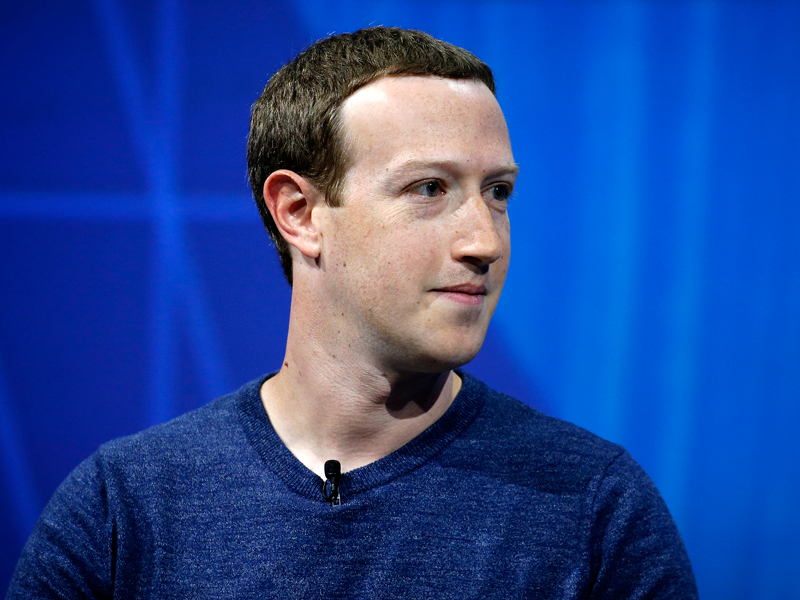Facebook pivots to privacy-based model
Facebook CEO Mark Zuckerberg set out his vision for a platform focused on security, where content “won’t stick around forever”

The billionaire founder of Facebook has outlines his vision for a new, privacy-centric Facebook model that will be based on intimate interactions, encryption, safety and secure data storage
Founder and CEO of Facebook Mark Zuckerberg has announced a new, privacy-focused vision for the social network that veers away from the open sharing model he originally pioneered.
“Facebook and Instagram have helped people connect with friends, communities and interests in the digital equivalent of a town square,” Zuckerberg said in a blog post shared to Facebook on March 6.
Some critics have seen the move as an ill-disguised strategy to salvage Facebook’s reputation, providing commercial benefits for the company but not for its users
“But people increasingly also want to connect privately in the digital equivalent of a living room,” he continued.
The billionaire founder of Facebook went on to set out his vision for a new, privacy-centric model that will be based on intimate interactions, encryption, safety and secure data storage.
Zuckerberg also pledged to reduce the permanence of user-added content, saying: “We won’t keep messages or stories around for longer than necessary to deliver the service or longer than people want them.”
Facebook has been hit by a series of privacy scandals in recent years, the most significant of which saw the personal data of about 50 million individuals harvested and passed on to political targeting consultancy Cambridge Analytica.
Zuckerberg addressed the lack of trust in Facebook’s security measures in his post, saying: “We don’t currently have a strong reputation for building privacy protective services.”
Some critics have seen the move as an ill-disguised strategy to salvage Facebook’s reputation, providing commercial benefits for the company but not for its users. Ashkan Soltani, a former chief technologist for the Federal Trade Commission, tweeted: “While positioned as a privacy-friendly play, its timing suggests a competition play to head off any potential regulatory efforts to limit data sharing across services.”
BREAKING: @Facebook moves to combine its multiple Messaging platforms.
While positioned as a privacy-friendly play, it’s timing suggests a competition play to head off any potential regulatory efforts to limit data sharing across services https://t.co/BNKOlpryiT
— ashkan soltani (@ashk4n) March 6, 2019
The BBC’s North America technology reporter Dave Lee also highlighted concerns that if content shared on Facebook is more private and increasingly temporary, it may be more difficult to hold the tech giant liable for any future misuse of data.
Zuckerberg also described an ongoing commitment “not to build data centres in countries that have a track record of violating human rights like privacy or freedom of expression”. He conceded that this pledge, together with the encrypted model, would limit Facebook from entering certain new markets, or may mean the social network is blocked in some countries. “That’s a tradeoff we’re willing to make,” he added.
These comments appear to refer to China, a market that Zuckerberg has long attempted to enter, but with little success due to the country’s stringent data storage laws. Internet service providers in China are obliged to keep all personal data produced by its citizens on computers within the country’s borders; to comply with these regulations, Facebook would be forced to build a data centre on Chinese soil.
An anonymous Facebook source told Buzzfeed News that the company “does not see a way forward in China”, a move which has been welcomed by critics. Facebook’s former Chief Security Officer, Alex Stamos, tweeted: “Zuck [sic] has clearly given up on entering China, as these changes makes [sic] that impossible. Good.”
7) The “Secure Data Storage” section is a massive shot across Tim Cook’s bow. Expect to hear a lot about iCLoud and China every time Cook is sanctimonious.
In other news, Zuck has clearly given up on entering China, as these changes makes that impossible. Good. pic.twitter.com/xvkdS4kN3b
— Alex Stamos (@alexstamos) March 6, 2019
Zuckerberg ended the post by setting out Facebook’s next steps, saying: “Working through these principles is only the first step in building out a privacy-focused social platform. Beyond that, significant thought needs to go into all of the services we build on top of that foundation.”
It’s unlikely that user experience on Facebook will change significantly in the short term as Zuckerberg is simply setting out the guiding principles for the new model. The details of how the social network plans to implement this new philosophy remain to be seen, and details will undoubtedly be heavily scrutinised as they emerge in the coming months.













